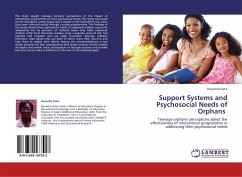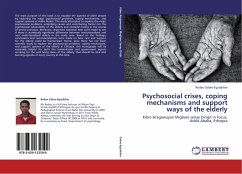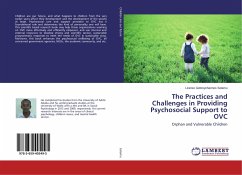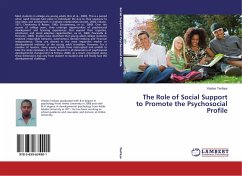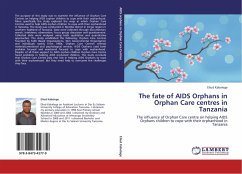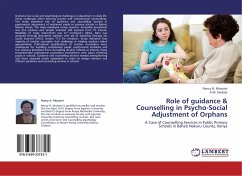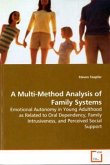The study sought teenage orphans perceptions of the impact of intervention programmes on their psychosocial needs. The study was based on the descriptive survey design and a sample of 60 respondents was used. Data were collected mainly through a survey questionnaire. The findings of this study showed that psychosocial needs of orphaned children cannot be adequately met by provision of material needs only. Most orphaned children suffer from inferiority complex, have a negative sense of self, feel rejected and hopeless and are easily frustrated. Teenage orphans therefore, need adults who can listen to them, share their concerns and help them to exploit their talents. Among the recommendations it was clearly pointed out that organizations that target orphans should employ strategies that enable active participation of teenage orphans and provide love and care to make a difference in the lives of the disadvantaged.
Bitte wählen Sie Ihr Anliegen aus.
Rechnungen
Retourenschein anfordern
Bestellstatus
Storno

